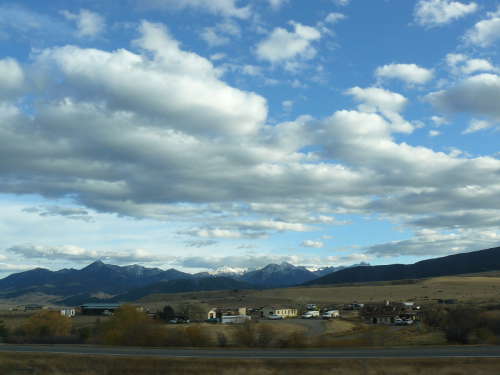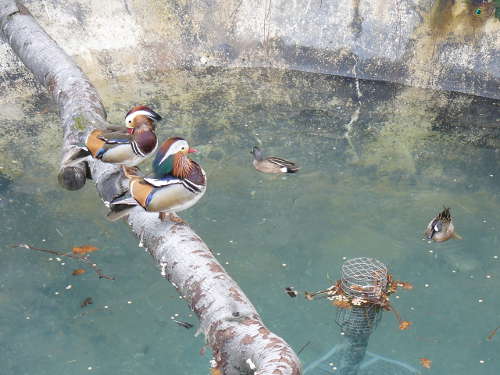 Location Taken: Yellowstone National Park, Wyoming
Location Taken: Yellowstone National Park, Wyoming
Time Taken: October 2012
For some reason my thoughts turned to one of the niche game series I’ve loved for years, the Suikoden series.
It’s one of the best classic Japanese RPG series I’ve played, right up there with Final Fantasy. In fact, I’d say Suikoden beats Final Fantasy for story most of the time. Like most JRPGs, the game has you wandering around fighting enemies in a turn-based system (you select what you want to do from an extensive menu, then all your characters do it, then it’s your enemy’s turn, and both sides wait patiently for the other to finish). Meanwhile an extensive story is going on, usually dealing with the fate of the world or something similarly epic.
There’s also the Western RPG game genre, and while both JRPGs and WRPGs have similar focus on the player stepping into a role and playing it (hence the Role Playing Game part of that name), the Western ones tend to put you into an Everyman-esque role while the Japanese ones give you a specific role in the story they are telling. The Western ones frequently focus more on gameplay, and long ago went away from turn-based combat to more compelling forms. Skyrim and the Elder Scrolls series are the quintessential WRPGs, and use a real-time “hit the enemy with the sword before he kills you” style of fighting. Mass Effect and Bioshock, two of the series with the best stories put out by Western companies in the last decade, both have First-Person Shooting as their primary gameplay. This is making them tougher and tougher to separate out as a genre (Bioshock frequently is marked as FPS instead of RPG), but it works better for most people. Turn-based gameplay gets repetitive and full of micro-managing very easily.
In terms of story, well, both WRPGs and JRPGs can deliver compelling tales, but they usually go at it in different ways. WRPGs frequently start you off as a nobody with a great destiny whose role it is is to find that destiny and take your own path to fulfilling it. JRPGs put you into a story frequently already in progress, and your role is to follow the twists and turns of the story. There’s more freedom of expression in WRPGs, but the JRPGs can tell a much much more compelling story. If you’re still not getting the difference, watch this fantastic video on the topic. Still, all of the video game stories I’ve played that have just stuck in my soul for years afterwards have been JRPGs rather than WRPGs.
And the Suikoden series is the best at doing that. It’s a rich world they have created for each and every game, and several aspects of commonality between the games have shaped which stories are told in a fascinating fashion.
For one thing, every series has 108 characters that are part of the “Stars of Destiny”. If you manage to track down and convince every single one of them to join your side, you get the best ending to the game. Otherwise, that final fight against the great evil will not have everything turn out ideally, from long term friends dying to save you to your main character being possessed by the great evil and the like. What this means for the game, though, is that there is a massive cast list. Now, there are a small group of the Stars of Destiny who are more important than others, with the most crucial role to play in the story, but every one of the 108 has their own small subplot.
And well, having 108 people on your side means you have a small army. And you’ve got to put these people somewhere so the player can go and see how many they’ve collected, so you always get a castle for yourself. What this means, though, is that instead of being a small ragtag band of heroes, you are a noticeable power. And the stories told in the series take full advantage of that. They have a much stronger focus on politics and alliances and large-scale events than most stories manage. Instead of, say, trying to clear your name of a false murder accusation by collecting evidence for the court or beating up the one accusing you until they drop the accusation, you’re gathering a massive army and fighting a full scale war with both sides claiming the other one is lying and really was the one who murdered the queen.
And still, with all the small stories going on with the 108, and a large portion of them being non-combatants, you’re wandering around talking to cooks and actors and fishermen learning about them and asking them to join your side. It’s really compelling.
Perhaps that’s why the best one in the series, Suikoden II, is impossible to find for less that $100. On Amazon, make that $125, for a used copy. The new ones run at $380. The weaker ones in the series have lower price tags, but even Suikoden IV, which was full of obnoxiously long and boring sailing sections and a nonsensical final boss (suddenly, giant evil tree!), is still running at $50 for a new copy.
There’s a lot else to this series that makes it so loved, but it’s never caught on beyond niche game level in America. The weaker game play has been holding it back. Perhaps that’s why they haven’t brought over the most recent one from Japan, despite it topping the charts over there. Which is a real pity, because it looks fantastic.
Admittedly, I don’t own a Playstation Portable, which is what it was released on, so maybe it’s just as well the temptation isn’t there…
Still, hopefully they’re going to bring over the next games in the series, for it is a fantastic series and one that always delivers in some way…
And where else am I going to get epic-level political plotlines?! Pokemon?!
Oh wait, that series is getting rather compelling stories now too… Huh…
 Location Taken: somewhere in Eastern Washington
Location Taken: somewhere in Eastern Washington



